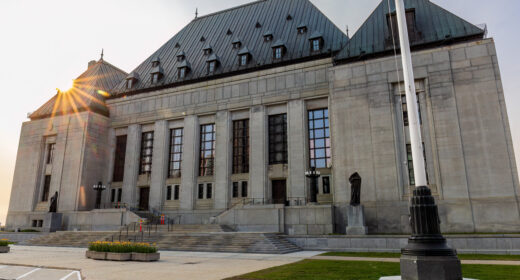Nelligan O’Brien Payne gratefully acknowledges the contribution of Victoria Craine, Student-at-Law in writing this blog post.
Canada’s intellectual property regime has been significantly improved by virtue of amendments to the Canadian Patent Act and Trade-marks Act, affording statutory privilege between intellectual property owners and their patent and trademark agents. Effective June 24th, 2016, these amendments ensure that client disclosures relating to obtaining intellectual property rights are full and frank, unencumbered by concerns as to whether confidential information should be disclosed.
Specifically, new additions section 16.1 to the Patent Act (see here) and section 51.13 to the Trade-marks Act (and here) provide that a statutory privilege may apply to a communication that is:
a) Between a person who is a registered patent agent/trademark agent and that person’s client
b) Intended to be confidential, and
c) Made for the purpose of seeking or giving advice with respect to any matter relating to the protection of an invention, or a trademark, official mark or geographical indication protectable under the Trade-marks Act, respectively.
As such, no agent shall be required to disclose, or give testimony on, the communication in a civil, criminal or administrative action or proceeding, provided the conditions are satisfied. Of course, this statutory privilege is subject to those exceptions that apply to solicitor-client privilege, and that privilege can be expressly or implicitly waived by the client.
Notably, this highly anticipated amendment strengthens Canada’s role in the international intellectual property community. Historically, Canadian courts have declined to recognize a similar privilege for communications with patent and trademark agents, even for communications with foreign agents who enjoyed privilege in their foreign home jurisdictions (see Lilly Icos LLC v Pfizer Ireland Pharmaceuticals). As such, Canadian patent and trademark agents were subject to unfair disadvantages, compared to other jurisdictions that provide for such privilege. Nevertheless, these amendments bring Canada in line with the approach taken to such communications in other common law countries that recognize privilege.
The statutory privilege extends to communications between a patent or trademark agent in a foreign country other than Canada and their client if:
a) The communications are privileged under the law of the foreign jurisdiction; and
b) The communications, if they had been made by a Canadian agent, would otherwise have satisfied the three requirements for Canadian statutory privilege.
These amendments have retroactive effect, applying to communications made before June 24th, 2016, provided that such communications have remained confidential. However, privilege will not apply in respect of an action or proceeding commenced prior to June 24th, 2016.
If you have any further questions about privilege, patents or trademarks, feel free to contact our Intellectual Property Group.


